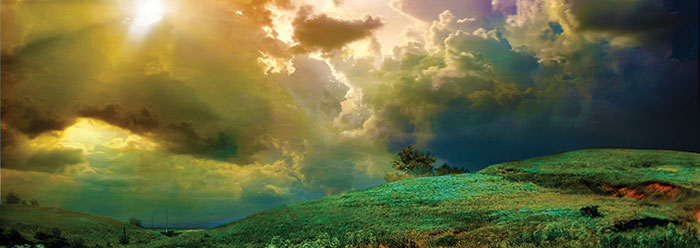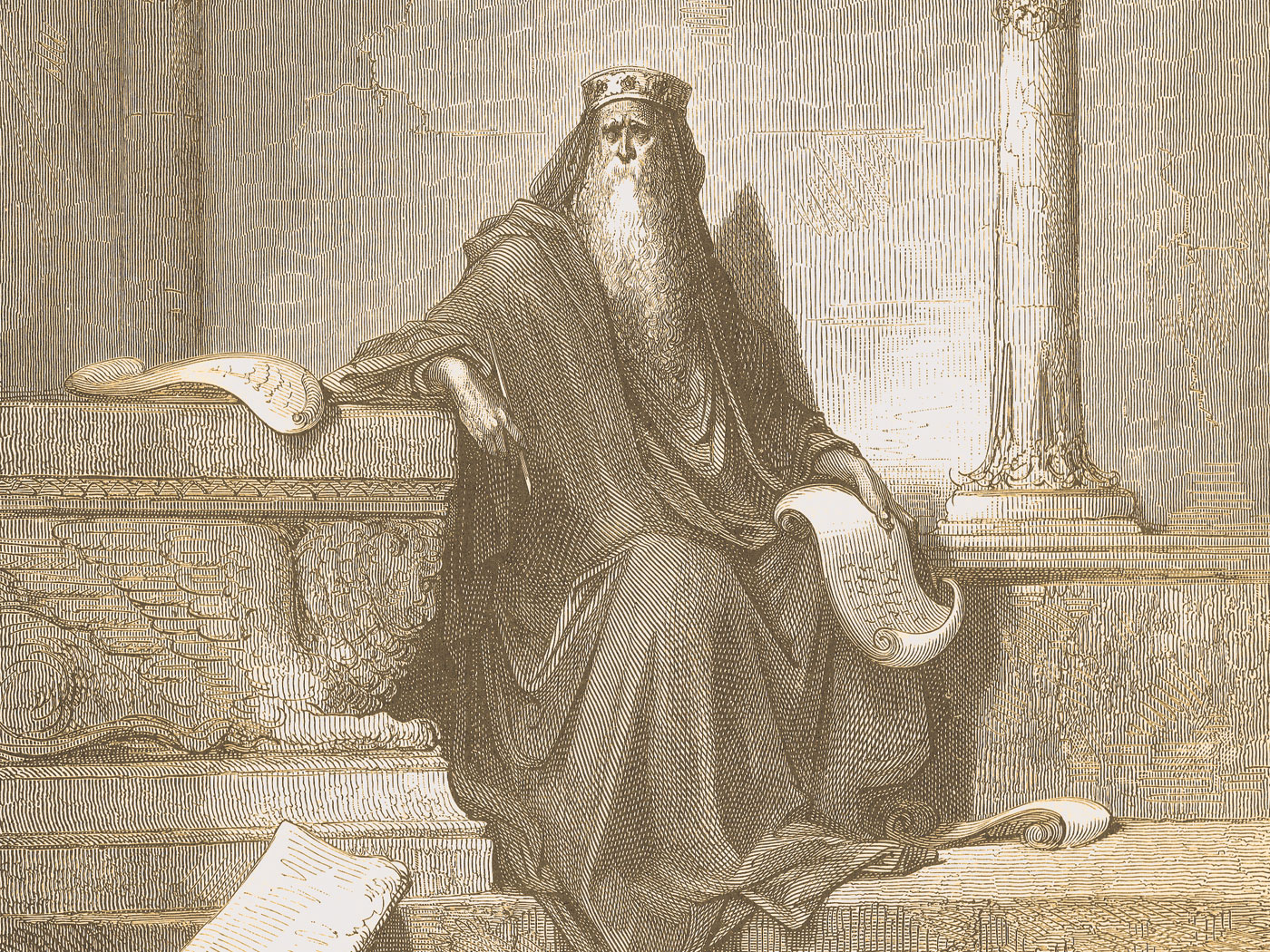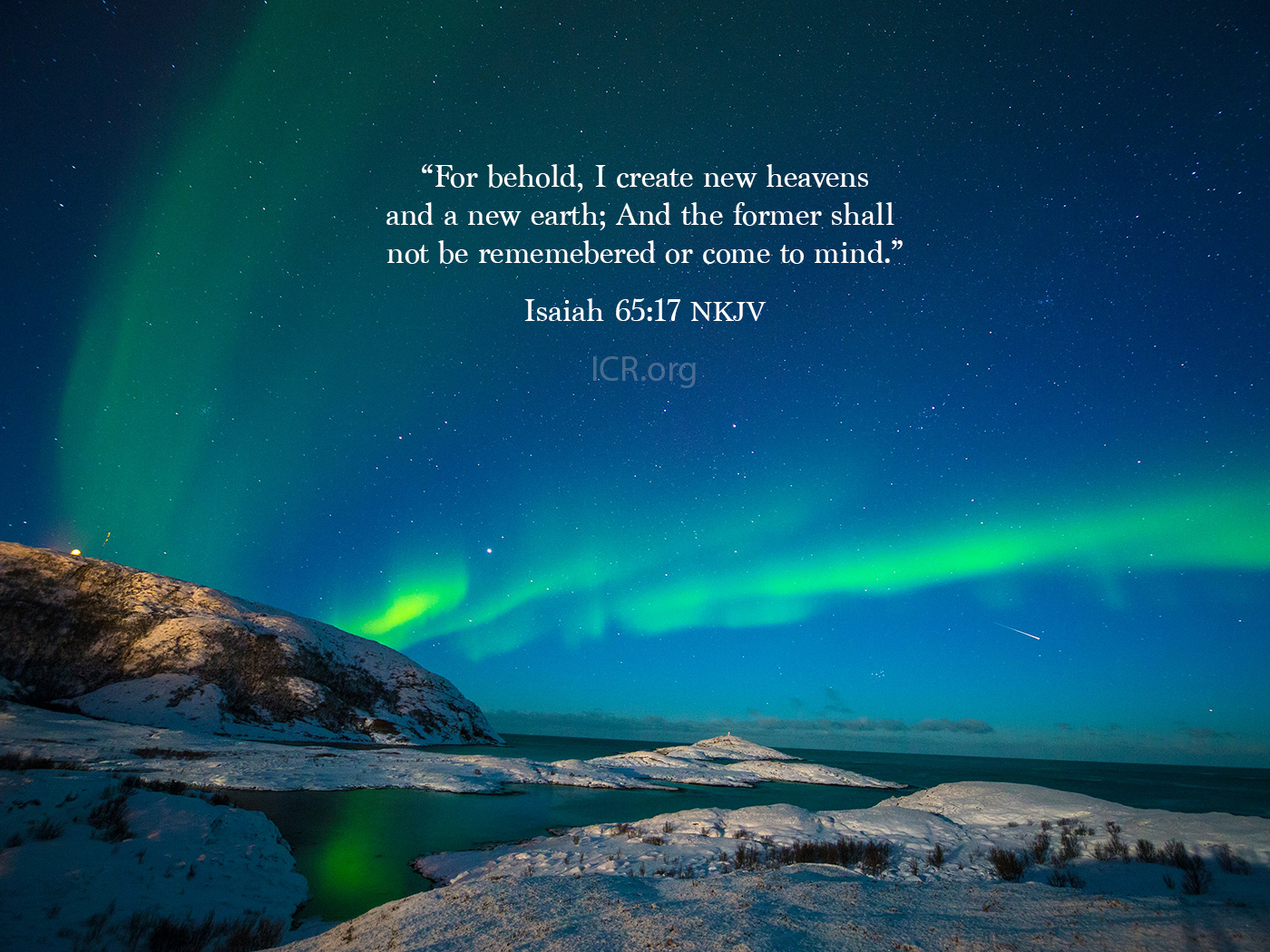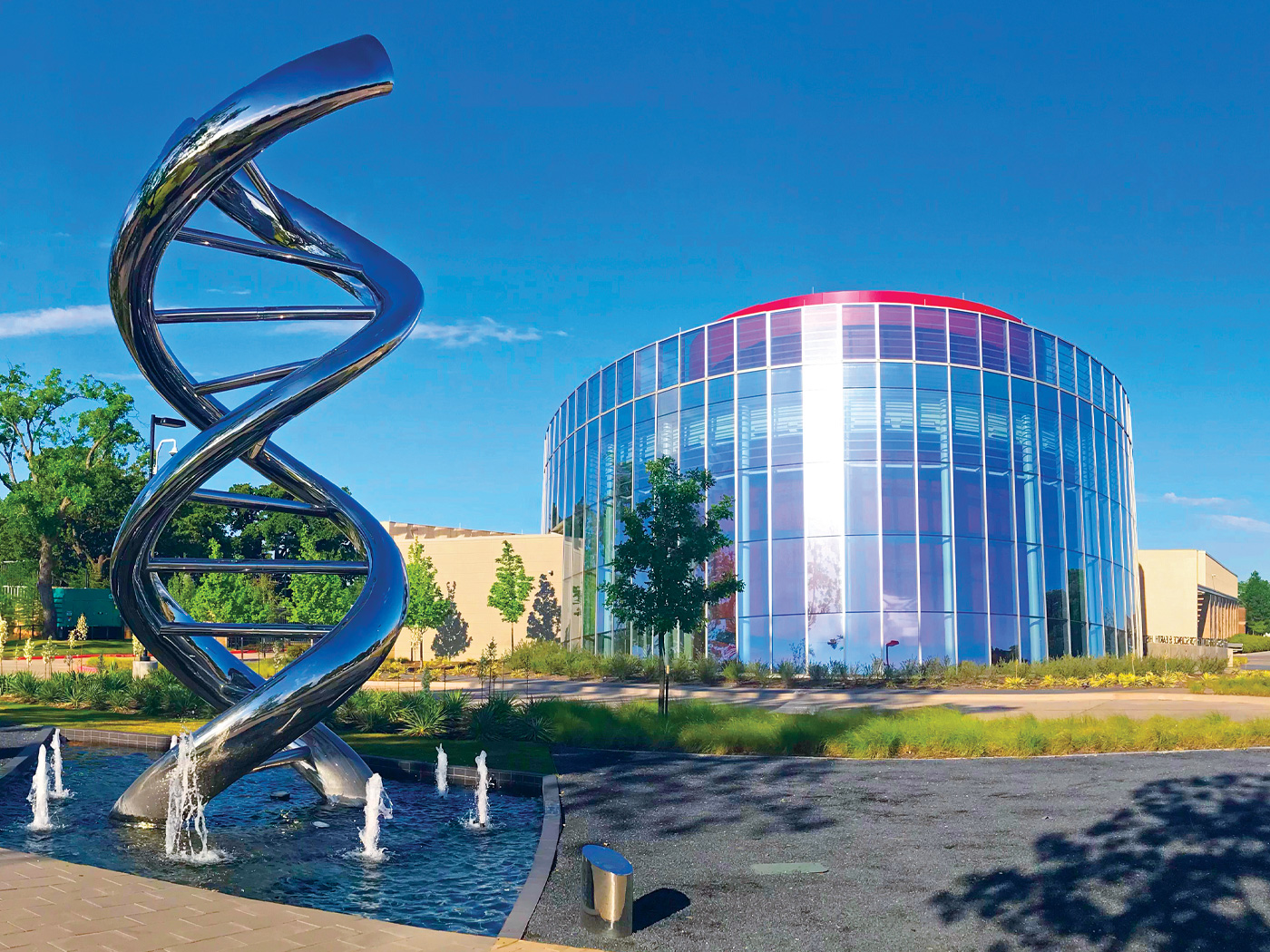And Jesus said unto him, No man, having put his hand to the plough,
and looking back, is fit for the kingdom of God. (Luke 9:62)
Hebrews 11:1 records the Bible’s precise definition of faith: “Now faith is the substance of things hoped for, the evidence of things not seen.” The word translated “substance” in the King James Version of the Bible is a Greek word that simply means “standing under.” Faith stands under the things we hope for. Other Bible versions translate the word as “assurance” or “being sure.” This part of our faith—the very substance of our hope—is forward-looking.
The word rendered “evidence” is the translator’s choice for an uncomplicated Greek word meaning “proof.” Faith is the proof of things “not seen.” Other Bible versions translate that word as “certain” or “conviction.” This part of our faith—unmoving conviction—is aware of matters that we cannot now measure or observe but has confidence that they exist or have happened in the past. Perhaps it is correct to say that our faith is confident of the future fulfillment of God’s promises based on the conviction that God has done exactly what He said He would do.
Salvation Basics
There are several basic issues involved with our “rescue” by God from the sin nature that we all have inherited from Adam. That depraved condition renders us incapable of saving ourselves.
- We “were dead in trespasses and sins” (Ephesians 2:1).
- We are each a “natural man” and cannot receive “the things of the Spirit of God…because they are spiritually discerned” (1 Corinthians 2:14).
- That alone is a paradox since “without faith it is impossible to please [God]: for he that cometh to God must believe that he is, and that he is a rewarder of them that diligently seek him” (Hebrews 11:6). If indeed we are spiritually “dead” and cannot receive spiritual knowledge from the Spirit of God, how then can we believe and exercise faith about a God whom we cannot possibly know? Simply this: God must Himself draw us to Himself, and grant us the gift of faith that enables us to understand and believe.
- “No man can come to me, except the Father which hath sent me draw him” (John 6:44).
- “For by grace are ye saved through faith; and that not of yourselves: it is the gift of God” (Ephesians 2:8).
Much more could be said about this marvelous grace that is extended to every person, but once faith is gifted, the evidence of God’s provision through Jesus Christ becomes the substance upon which we believe and are saved. The paradox is that the historical fact of Christ’s death, burial, and resurrection accomplishes an eternal work that is not seen apart from the conviction that the gospel Scriptures are true. Once made certain of the truth of God’s Word, we then hope for a salvation “ready to be revealed in the last time” (1 Peter 1:5). The confidence about events accomplished on Earth in the past enables us to have conviction about promises yet to be fulfilled.
Lifestyle Basics
Once we are twice-born (John 3:3, 7) and are “created in righteousness and true holiness” (Ephesians 4:24), we are to “walk by faith” (2 Corinthians 5:7) and to “live by faith” (Romans 1:17). Indeed, this is so clearly expected of the Christian that we are told, “Now the just shall live by faith: but if any man draw back, my soul shall have no pleasure in him” (Hebrews 10:38).
Herein is the paradox of faith continuously tested.
Examples are provided to us in Hebrews 11, often called the “Faith Chapter.” Abel was murdered by Cain because Abel “by faith…offered unto God a more excellent sacrifice than Cain” (Hebrews 11:4). The account in Genesis 4 suggests that Abel was following (by faith) the instructions that had been given for a substitutionary sacrifice—and that Cain arrogantly refused (apparently after many years) to obey those clear instructions. Abel lived and walked in faith based on evidence provided to his parents before he was even born and based on the substance of “things hoped for,” the promises of a future redemption.
Noah took action based on the evidence of God’s warning “of things not seen as yet” about a future judgment and through his obedience “became heir of the righteousness which is by faith” (Hebrews 11:7). Noah lived and walked in faith for a long time, enduring untold ridicule and expending vast resources while building the Ark with his obedience wholly based on the substance of God’s Word.
Abraham “went out, not knowing whither he went” (Hebrews 11:8) and waited over two decades for the birth of a promise that has yet to be completely fulfilled: “For he looked for a city which hath foundations, whose builder and maker is God” (Hebrews 11:10). He had the evidence of God’s instructions and the substance of God’s promises, but his long life was filled with both waiting and turmoil before the birth of the promised heir. “Through faith also Sara herself received strength to conceive seed, and was delivered of a child when she was past age, because she judged him faithful who had promised” (Hebrews 11:11).
The long list of Old Testament saints “all died in faith, not having received the promises, but having seen them afar off, and were persuaded of them, and embraced them, and confessed that they were strangers and pilgrims on the earth” (Hebrews 11:13), demonstrating the complete faith paradox of confidence in the present “evidence” based on future “substance.”
Faith’s Foundation
ICR speakers and writers are fond of pointing out that the opening chapters of Genesis are foundational to the rest of Scripture. Belief in the creation of the universe is cited as the primary example of faith (Hebrews 11:3). The Lord Jesus is identified as the Creator in several sections of Scripture (John 1:1-3; Colossians 1:16-17; Hebrews 1:2). Jesus insisted that Adam and Eve were the initial pair in “the beginning” (Matthew 19:4) and that the account of Noah and the horrible judgment of the great Flood were actual historical events (Matthew 24:37-39).
The apostle Peter insisted that those who would deny the creation and the planet-covering Flood were “willingly ignorant” of both the evidence and the substance revealed in God’s Word (2 Peter 3:5-6). Those who ignored Noah, that “preacher of righteousness,” were swept away in the awful judgment of the Creator on the “ungodly” (2 Peter 2:5). Evidently, the very first test of faith lies in the evidence of the creation itself and the substance of the marvelous things the Creator has done.
This is precisely why ICR exists.
Our current era denies biblical creation more than any other era since the Flood of Noah’s day. The current philosophy of science is dominated by atheistic naturalism. Politics, law, and sociology are now largely based on evolutionary assumptions, as are the various offshoots of philosophy and psychology. Apart from the three monotheistic religions of Christianity, Judaism, and Islam, other religious belief systems are either polytheistic or pantheistic. Theologians have attempted to harmonize these majority worldviews with the biblical message—only to denigrate the very God they claim to espouse.
Apart from a precious few Christian schools, colleges, and seminaries, future Christian leaders are taught to compromise or even abandon their faith in the Bible, or they learn that the clearest evidence of God’s unique power and authority is irrelevant. Those who would consider the substance of God’s promises are faced with the specious dichotomy of “creation by evolution.” When the foundational truths of Genesis (the creation, the Fall of man, and the judgment of the Flood) are ignored or denied, there is no basis for trust in the ability of God to create and save His twice-born children or to carry out His eternal judgment on those who reject His Son.
This is why ICR spends its resources on scientific research.
If the facts of science do not confirm the words of Scripture, then God is not trustworthy. If we cannot trust that which we can test and evaluate, then why should we believe the words of God when He insists that we must repent and believe what He says about the unseen eternity? Science does confirm Scripture. God is trustworthy. This is a wonderful time to be a Bible-believing Christian. There is an enormous amount of demonstrable evidence that the substance of God’s promises is valid. But many churches ignore or feel their leaders are unqualified to present these evidences.
This is why ICR hires personnel whose credentials are impeccable. This is why ICR encourages its staff to live and walk by faith. This is why ICR takes the time and uses the means to publish material, develop high-quality presentations, and send its professional staff across the nation to conduct seminars, encourage pastors, and disciple students.
The Kingdom is facing intellectual battles seldom seen in human history. Churches are not normally equipped to deal with the arguments and the “lofty opinions” that are raised “against the knowledge of God” (2 Corinthians 10:5). ICR is so-equipped. ICR is prepared, qualified, and committed—scientifically, professionally, and spiritually. ICR is both successful and stable, now entering our 43rd year of national ministry reaching many hundreds of thousands.
This is why ICR asks for your financial support.
Research is time-consuming and resource-intensive. We at ICR provide Acts & Facts and Days of Praise without charge. Tens of thousands of our books and booklets are given away to Christian leaders each year. All of this is made possible by your assistance.
ICR seminars and conferences are a ministry that must be expanded. Churches need high-quality video teaching tools to reach their students and young professionals. Christian schools and homeschool families need solid material that provides accurate answers for the wide-ranging questions fostered by an academic system that mocks the foundational truths upon which faith is built.
ICR is meeting many of these needs. Much more needs to be done, and it is our hope and conviction that much more can be done. Place your hand on the plow and join with us. Partner with ICR to disseminate the evidence and display the substance of the “faith which was once delivered unto the saints” (Jude 1:3).
* Dr. Morris is Chief Executive Officer of the Institute for Creation Research.
Cite this article: Morris III, H. 2013. The Paradox of Faith. Acts & Facts. 42 (6): 5-7.






















